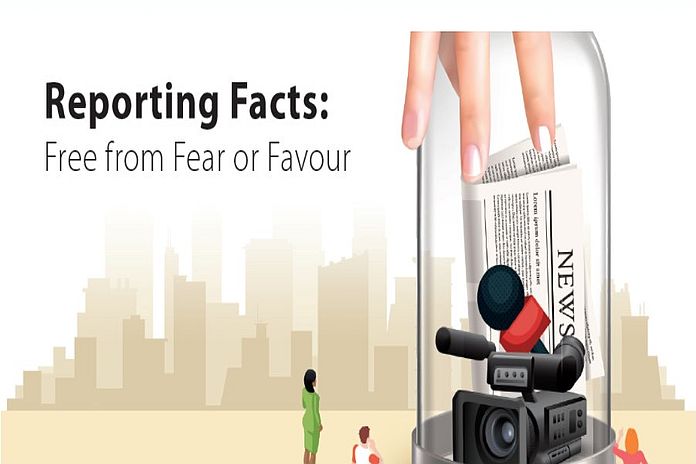PARIS, France – In the run-up to the World Press Freedom Conference 2020, UNESCO has released a new study in the World Trends in Freedom of Expression and Media Development series. The report discusses the most urgent threats to editorial independence and journalistic integrity around the world.
Reporting Facts: Free from Fear or Favour provides a comprehensive overview of the ways in which independent media are being undermined by both powerful external actors and decision-making structures or individuals within media organizations.
Among the developments tracked is media capture, a form of media control achieved through a series of premeditated steps taken by governments and powerful interest groups, which undermines the ability of journalism to serve as a public good. These include taking over regulatory control, state-owned media operations, public advertising, and politically linked ownership of private media.
“Failing to prevent media capture is going to deliver a fatal blow to independent journalism in more and more countries,” said the study’s author, Marius Dragomir, Director of the Center for Media, Data and Society at the Central European University.
Media capture adds to the many other pressures faced by independent media, such as:
- Changes in financing models;
- Gender inequality in newsrooms;
- The financial impact of internet companies and the advertising industry on news media;
- Conflicts of interest.
Taken together, these threats have a detrimental impact on the ability of journalism to inform audiences, empower citizens, and keep power in check.
The study brings attention to the multiple efforts and initiatives that have proven successful in safeguarding independent journalism. It calls for dialogue towards practical actions to strengthen editorial independence and professional standards of journalism. It also provides a list of recommendations anchored in research and inspired by good practices to prevent and counter media capture.
An earlier preview of this research was launched in May 2020 to coincide with the World Press Freedom Day observations. A webinar discussed the findings of the study with Dragomir alongside prominent journalists and civil society representatives.
This publication is an In-Focus edition in UNESCO’s flagship series World Trends in Freedom of Expression and Media Development, which is supported by the Organization’s Multi-Donor Programme for Freedom of Expression and Safety of Journalists. In line with UNESCO’s mandate to promote “the free exchange of ideas and knowledge”, the series supports the advancement of universal human rights and democratic values by providing a unique and authoritative knowledge resource on developments in media freedom, pluralism, independence and the safety of journalists.
The World Press Freedom Conference (WPFC), co-hosted by UNESCO and the Netherlands, will take place as a digital event on December 9-10, 2020. This WPFC will jointly celebrate World Press Freedom Day and the International Day to End Impunity for Crimes against Journalists.





